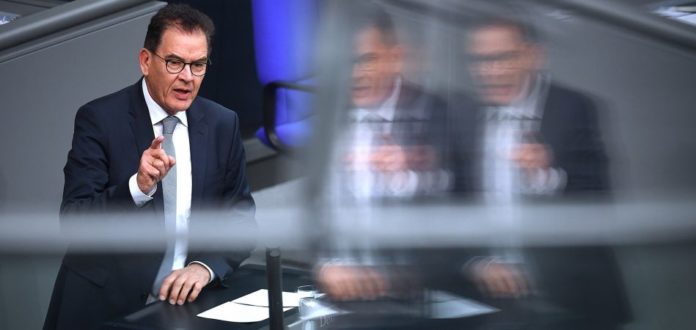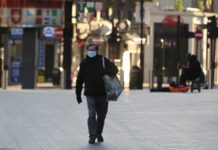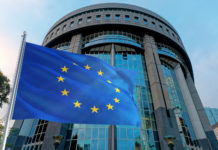
First shops and school operations begin in Germany
After a month of standstill, the week before last in April begins with the opening of the first shops and the gradual resumption of school operations. However, the procedure varies nationwide.
Berlin (dpa) – Before the beginning of the first easing of the Corona crisis, Federal Economics Minister Peter Altmaier has called on federal and state governments to be more united.
In Saxony, Berlin and Brandenburg, the first graduating classes for exams and exam preparation will return to schools this Monday. In other states, this will happen a few days later, but in some places not until May. For the final classes in Saxony, so-called hygiene starter packs with disinfectants and protective masks are now being distributed.
There is also no uniform procedure for emergency childcare in day-care centres. This is now to be extended to other professions. How this will be done in concrete terms is up to the states. Starting Monday, a working group of states, federal government and experts will work out guidelines on how a gradual re-opening of day-care centers could look like. Minister of Family Affairs Franziska Giffey (SPD) told the German Press Agency: “A blanket statement that day-care centres will remain closed until the summer will cause even more stress for many families and cannot be the only answer”.
At the beginning of the week in many places small and medium-sized shops are allowed to open again. At the same time, in Saxony, a compulsory mask is being introduced in buses, trains and shops. At the same time, the state government will again allow public services that remain prohibited elsewhere. Mecklenburg-Western Pomerania also prescribes mouth and nose protection in local traffic from April 27.
In addition, there are individual cities and municipalities that are taking this course: Jena (Thuringia), Sulz am Neckar (Baden-Württemberg) and Wolfsburg (Lower Saxony). Police unions called for a nationwide compulsory wearing of protective gear over the weekend. The federal government has so far rejected this. It limits itself to recommending protective masks when shopping and on public transportation.
“If we keep our nerves now, we can avoid a second lockdown,” Altmaier said. “That is why joint action by the federal and state governments is so important”. Scholz referred to different circumstances in the individual states. The Vice-Chancellor went on to say: “In the end there are well-balanced decisions that are often more fitting than in a centralised state where few people are involved in the debates and people usually think from the capital”.
There was a lot of criticism from health politicians and consumer advocates that sick leave should no longer be possible over the phone starting Monday. The corresponding exemption had not been extended on Friday by the Joint Federal Committee (G-BA) of physicians, clinics and health insurance companies against the votes of the clinics and physicians. It is now feared that this could lead to an increased risk of infection in medical practices.
Despite the imminent loosening of the rules, the federal government made the citizens believe that everyday life will be different from before Corona for even longer. Scholz said on ARD television: “What we need now is a new normality for a long time to come.”
The goal is to gradually return to a life with fewer restrictions, Chancellery head Helge Braun (CDU) told the Dusseldorf “Rheinische Post” and Bonn’s “General-Anzeiger” newspaper. “But the epidemic is not gone. We must learn to live with it – until there is a vaccine.” Bavarian Prime Minister Markus Söder (CSU) said the numbers were stabilizing. “But it’s a fine line we walk.”





























